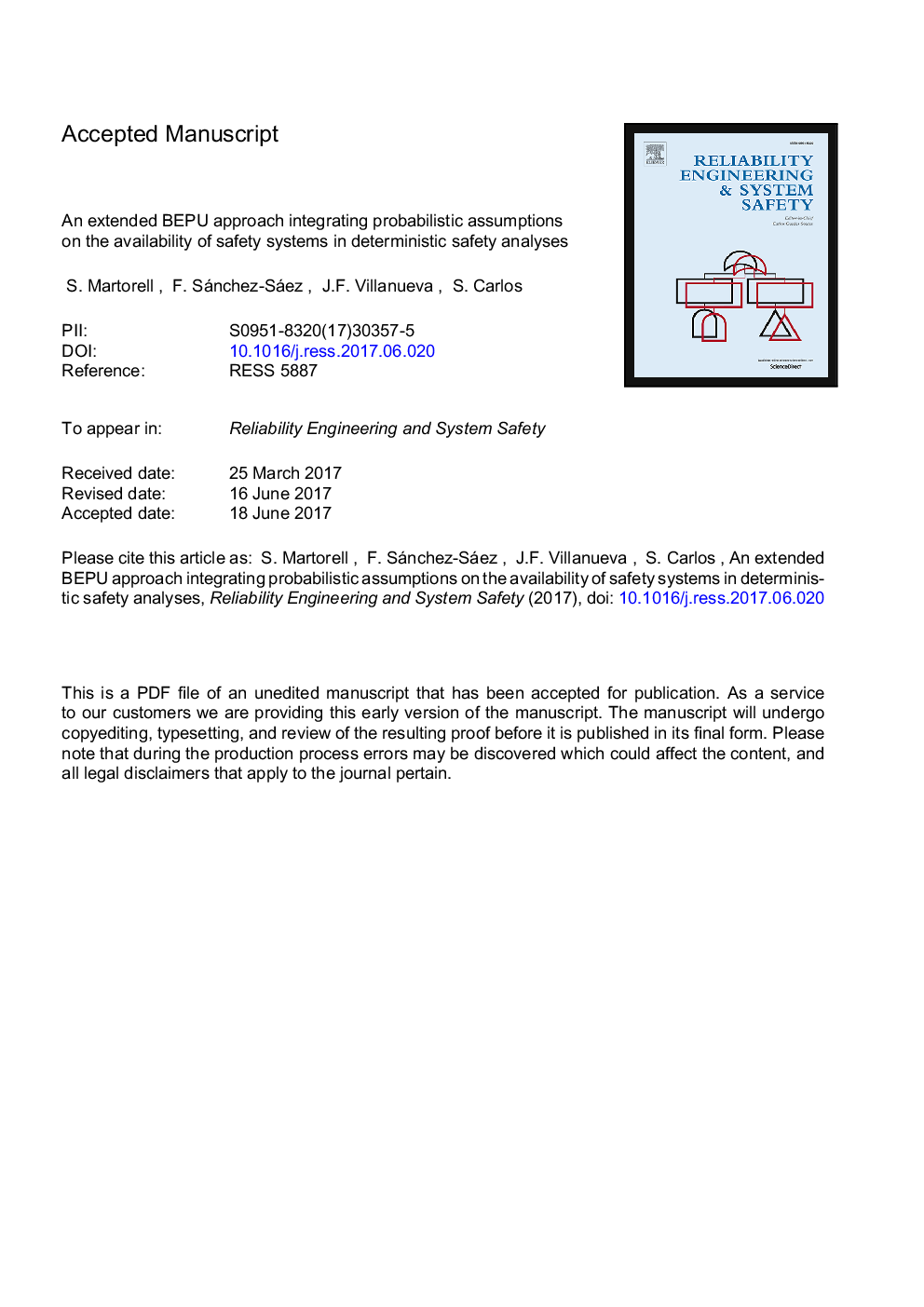| Article ID | Journal | Published Year | Pages | File Type |
|---|---|---|---|---|
| 5019501 | Reliability Engineering & System Safety | 2017 | 31 Pages |
Abstract
The International Atomic Energy Agency (IAEA) produced guidance on the use of Deterministic Safety Analysis (DSA) for the design and licensing of Nuclear Power Plants (NPPs) in “DSA for NPP Specific Safety Guide, No. SSG-2”, which proposes four options for the application of DSA. Option 3 involves the use of Best Estimate codes and data together with an evaluation of the uncertainties, the so called BEPU methodology. Several BEPU approaches have been developed in scopes that are accepted by the regulator authorities nowadays. They normally adopt conservative assumptions on the availability of safety systems. Option 4 goes beyond by pursuing the incorporation of realistic assumption on the availability of safety systems into the DSA. This paper proposes an Extended BEPU (EBEPU) approach that integrates insights from probabilistic Safety Analysis into a typical BEPU approach. There is an aim at combining the use of well-established BEPU methods and realistic (“probabilistic”) assumptions on safety system availability. This paper presents the fundamentals of the EBEPU approach and the main results obtained for an example of application that focuses on an accident scenario corresponding to the initiating event “Loss of Feed Water (LOFW)” for a typical three-loops Pressurized Water Reactor (PWR) NPP.
Keywords
FOSDeterministic safety analysisBEPUdNBRPoRVRelief valveATWSprzPWRPCTRPSRCSSSVSSGDSADesign extension conditionsPSAIHISTLChFdBCDBANPPMSIVFOMMCsDECOrder statisticsinternational atomic energy agencyIAEABest estimateProbabilistic Safety AnalysisDesign Basis AccidentsMinimal cut setCore damagePeak cladding temperaturePressurized Water ReactorReactor protection systemReactor coolant systemSafety systemsCritical heat fluxInitiating eventIHRMain steam isolation valveProbability distribution functionPressurizerFigure of meritnuclear power plantThermal hydraulicPdfAnticipated transient without scramSteam generator
Related Topics
Physical Sciences and Engineering
Engineering
Mechanical Engineering
Authors
S. Martorell, F. Sánchez-Sáez, J.F. Villanueva, S. Carlos,
